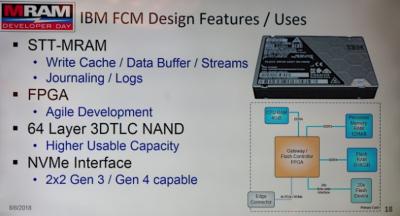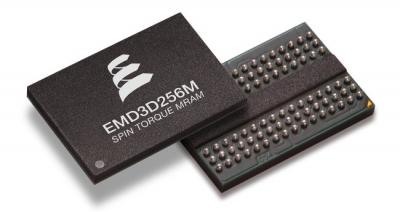MRAM Developer Day proceedings posted online
The MRAM Developer Day 2018 took place on August 6th, as part of this year's Flash Memory Summit. This seemed to have been an interesting event, with presentations from Everspin, GlobalFoundries, IBM, Applied Materials, Spin Transfer Technologies and more.
The organizers of the event posted the entire proceedings online - you can see all presentations here.









